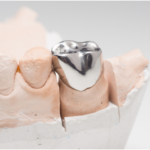Dual diagnosis treatment is an important and effective way to address the complexities of mental health and substance use disorders. This type of treatment looks at both mental health and addiction issues simultaneously, focusing on the unique needs of each person, rather than treating them as separate entities.
By understanding the benefits of dual diagnosis treatment, individuals can begin to take steps toward a healthier future. In this article, we will explore how dual diagnosis treatment works, what it offers for those in recovery, and how it can help restore balance to a person’s life.
We’ll also discuss the importance of finding an experienced provider who specializes in this type of care. With the right support system in place, individuals can find long-term success in their recovery journey.
What is Dual Diagnosis?
Dual diagnosis, also known as co-occurring disorders, refers to the presence of both a mental health disorder and a substance use disorder simultaneously. People who experience dual diagnosis often find that their symptoms tend to influence each other in complex ways.
For example, someone with depression may turn to alcohol or drugs as a way to cope with their low moods, while someone with an addiction may develop symptoms of anxiety or depression due to chronic drug abuse. In either case, it is important for individuals to receive appropriate treatment for both conditions in order to achieve long-term recovery.
Benefits of Dual Diagnosis Treatment
Dual diagnosis treatment offers a number of advantages for those in recovery from mental health and addiction issues. The most important benefit is that it addresses both conditions simultaneously rather than treating them as separate entities. This allows individuals to receive comprehensive care tailored specifically to their needs, while ensuring that all aspects of their disorder are being addressed.
Additionally, dual diagnosis treatment can also provide much needed support during the recovery process, helping individuals stay on track with their goals and manage any potential triggers or cravings they may experience.
Finally, by focusing on both mental health and addictive behaviors at the same time, dual diagnosis treatment helps reduce the risk of relapse and increases the chances of long-term success in recovery.
How Does Dual Diagnosis Treatment Work?
Dual diagnosis treatment typically begins with an assessment and evaluation of the individual’s mental health and substance use history. During this phase, the provider will assess both conditions and develop a personalized treatment plan that takes into account their unique needs.
This treatment plan may include psychotherapy, medication management, lifestyle modifications, relapse prevention skills training, and other evidence-based interventions. Additionally, those in dual diagnosis treatment may also be referred to support groups or other community resources where they can find additional assistance during their recovery journey.
Finding the Right Provider for Dual Diagnosis Care
When searching for a provider who specializes in dual diagnosis treatment, it is important to research their experience and qualifications. It is also important to look for providers who have a comprehensive approach to care that takes into account both the mental health and substance use components of the disorder.
Additionally, it’s essential to find someone who understands your individual recovery needs and can provide you with a supportive environment that encourages healing and growth. Ultimately, finding the right provider for dual diagnosis care is an essential step in achieving long-term success in recovery.
Conclusion – Living a Balanced Life with Dual Diagnosis Treatment
With a comprehensive dual diagnosis treatment plan in place, individuals can find the balance they need to live a healthy and fulfilling life. With the right support, they can learn how to effectively manage their symptoms and develop healthier coping skills that will serve them well in recovery. Ultimately, dual diagnosis treatment helps people overcome mental health and addiction issues so they can live life on their own terms.




